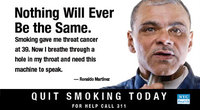Here’s Smartmom from this week’s Brooklyn Paper:
If you think you can shield your kids from the horrific realities of current events, think again.
Parents
try. They limit television watching. They hide the newspaper. They turn
off the news when it comes on. They stop talking about delicate topics
when their children walk into the room.
But kids know. Just like Smartmom always knew something was up when her maternal grandmother switched to Yiddish.
Kids
know when you’re hiding information and they also manage to find things
out for themselves from classmates, teachers, a friend’s parents, or a
headline at the newsstand (try explaining “Headless Body in Topless
Bar”!). Kids are exposed to the news — whether it’s Virginia Tech or
the sad death of Sludgie the whale in the Gowanus Canal — even when
their parents don’t know it.
“I don’t believe in sheltering kids
from the news because that’s what’s out there,” Keith Elliot Greenberg,
a producer of “Geraldo At Large,” told Smartmom in front of PS 321,
where his 10-year-old son is in the fourth grade.
“Back in 1966,
I asked my grandmother to read me all the articles in the Daily News
about mass murderer, Richard Speck. For me, it cultivated a certain
taste for lurid, tabloid news which I later pursued as a career,” says
Greenberg, who was in Blacksburg, Virginia last week interviewing the
South Korean community in the aftermath of the Virginia Tech massacre.
Needless
to say, many parents disagree with the lurid Mr. Greenberg. Smartmom’s
friend, Tall and Lanky, insists on protecting her children. She doesn’t
think they’re old enough to process this horrible crime and she works
hard to preserve their fleeting innocence.
So she was absolutely
sure that her 10-year-old daughter knew nothing — as Sgt. Schultz might
say, “Nut-tink!” — about the Virginia Tech tragedy.
Tall and Lanky was wrong.
Last
week, when Ryan Seacrest, host of “American Idol,” expressed his
sympathy to the families of the Virginia Tech victims at the top of the
show, Tall and Lanky’s 8-year-old son shouted out: “What happened in
Virginia?”
Their supposedly innocent 10-year-old didn’t miss a beat: “Oh, there was a massacre there. A guy murdered a bunch of people.”
Tall and Lanky was flabbergasted. “How did you know that?” she shrieked.
Her daughter shrugged. “My teacher led a discussion in class about it,” her daughter said.
Tall
and Lanky was not a happy camper. She was angry that her daughter’s
teacher didn’t tell the parents that there was going to be a discussion.
Perhaps
the classroom discussion was spontaneous. Maybe it grew out of
questions from one of the kids. It’s probably safe to assume that
school-age children will learn about current events in the classroom or
on the playground.
“I have a hard time with repression, with
things left unspoken,” says Greenberg. “There are, of course, lines
that we don’t cross. But it’s up to each parent to define those lines.”
For
Greenberg and his wife, discussing the Holocaust is one of those lines.
“The enormity of it — the fact that regular people were plucked out of
their lives and taken to gas chambers — it’s very distressing for a
child.”
He also doesn’t tell his son stories about people with Alzheimer’s who put themselves in harm’s way.
“My son’s grandfather has the disease and that would upset him.”
Clearly,
it’s up to every family to decide what children can and cannot handle.
Some kids worry things to death. Others are able to process things more
quickly.
Smartmom has always been open with her children about
what’s going on in the world. It’s not that she wants to scare them.
It’s just that she’s a bit of a news junkie, with the radio tuned to
WNYC for most of the day.
So on Monday night, news of the Virginia Tech massacre wafted through her apartment.
On
Tuesday and Wednesday, stories about the 32 victims and their mentally
ill killer continued to emanate from that kitchen radio.
Teen Spirit, who is 15, was clearly disturbed by the story.
“The only people who survived were those who pretended they were dead,” he told Smartmom.
But the 10-year-old Oh So Feisty One seemed to be tuning it out
while she worked on an art project or watched a “Sailor Moon” video on
the computer.
But on Thursday, Smartmom wasn’t so sure. An NPR
reporter mentioned that some of the shootings occurred in room 207 in
Norris Hall.
“That used to be Mrs. Cohen’s classroom,” OSFO shouted out.
“But they’re talking about one of the classrooms at Virginia Tech,” Smartmom told her.
“Well, I’m glad Mrs. Cohen isn’t in room 207 anymore.”
Perhaps
that’s how children see the world. They connect what’s going on “out
there” by connecting it to what they know here. That’s why news can be
very scary for children. If it can happen there, it can happen here.
So,
if you think your kids are tuning out the news, think again. Don’t for
a minute think that it’s not seeping in. And sometimes, it takes a few
years for the trauma to express itself.
A while back, Smartmom
ran into a Prospect Heights mom whose daughter was experiencing acute
anxiety riding a school bus to middle school.
When the girl spoke
with a therapist, it turned out she had many unresolved fears stemming
from 9–11, a mind-numbingly awful day that the girl remembered only as
that time when her mother had to walk all the way home from work. The
girl worried that if something bad happened again, she wouldn’t be able
to walk home from middle school.
After that, her parents showed
her that she could walk home from her middle school in an emergency.
Her parents even bought her a cellphone, which made her feel a lot more
secure.
But the whole thing might have been avoided — might, of
course, because all kids are different — if the parents had discussed
9–11 a bit more openly.
Smartmom believes that it’s better for
the child — and the parents — for children to hear difficult news from
their parents. That way, parents can determine how much their children
already know, answer questions, and allow the children to express their
feelings.
For the kids, hearing from the parents means they’ll get all the comfort, the love, and the hugs and kisses that they need.
No
less an authority than the late great Fred “Mr.” Rogers agrees:
“Somewhere deep inside each one of us human beings is a longing to know
that everything will be all right. Our children need to hear that we
will do everything we can to keep them safe and to help them grow in
this world,” he once wrote on his Web site.
The attempt to
preserve your child’s innocence can easily backfire. If your kids are
going to find out anyway, they might as well have you there to give
them something positive to take away.









